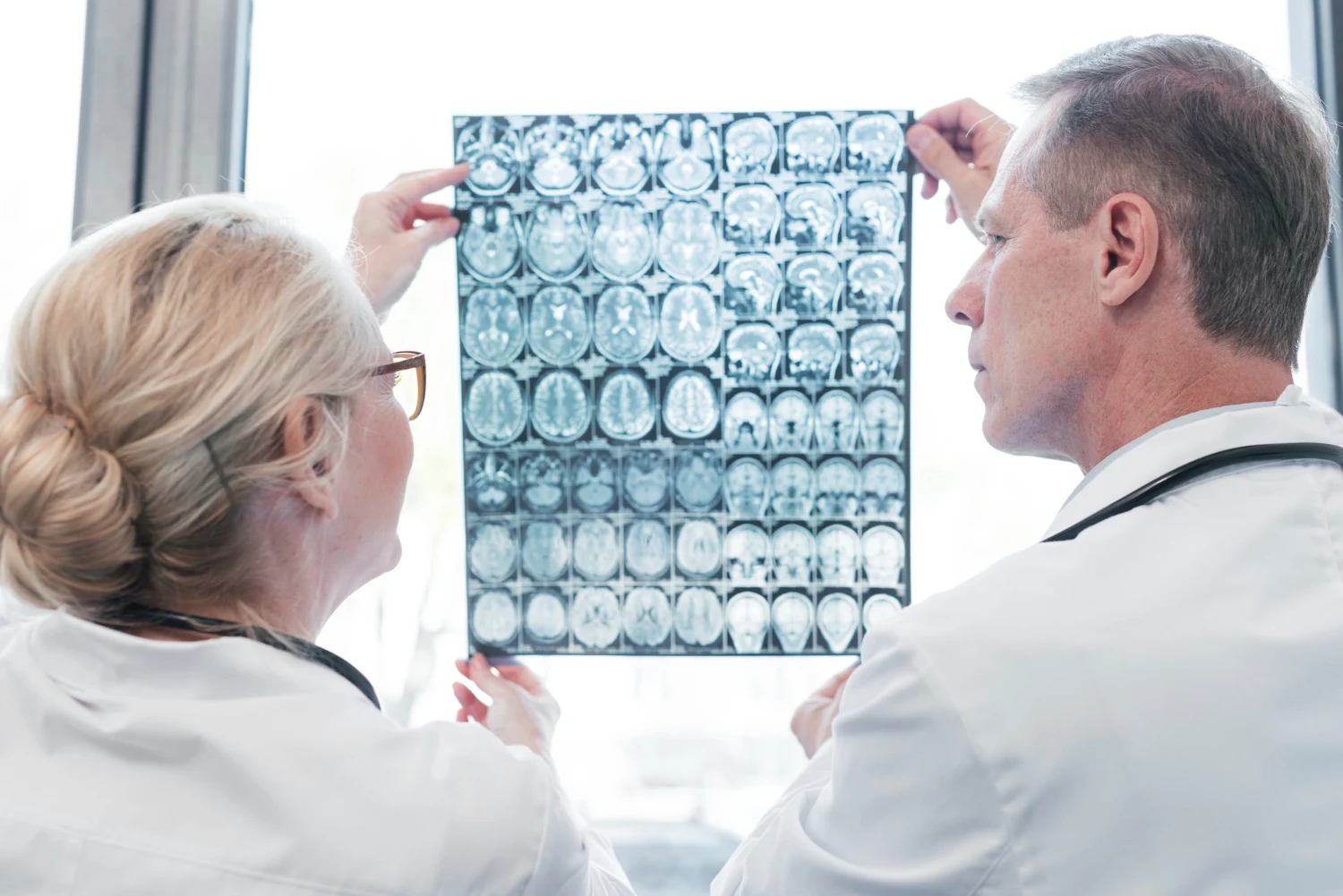The Relationship Between Alcohol and Mental Health

Alcohol and mental health have a complicated and mixed relationship in which one dramatically influences the other. The popular psychoactive drug alcohol can affect mental health both in an acute time set and also chronically. Although it may first offer a feeling of euphoria and relaxation, its use potentially leads to serious mental problems. Knowing this link is essential since alcohol is consumed by people from different backgrounds and social levels.
There is a correlation between regular alcohol consumption and the onset of mental health issues such as anxiety and depression. Alcohol abuse over an extended period can worsen existing mental health issues and even give rise to new ones. Nevertheless, individuals who experience mental health issues may resort to alcohol as a form of self-medication, exacerbating their condition and resulting in increased dependence and declining overall well-being.
Treatment for alcohol use disorder and mental health issues must take into consideration how these two factors interact to be able to address both psychological and physical symptoms of alcoholism and mental health independently or together. Understanding the link between drinking and mental health can positively impact long-term health and well-being, especially if you can make sense of the two-way link between these two. This article will help you understand this link and how to improve your health.
How Does Alcohol Affect Your Mental Health?
Here are some ways of how alcohol affects mental health:
Short-Term Effects
Alcohol's depressive effects on the central nervous system might cause sensations of relaxation and exhilaration at first. However, increasing blood alcohol levels can cause mood changes, aggressiveness, and impaired judgment. Even when drinking can relieve anxiety and tension for a while, you should take into consideration that these effects are usually followed by increasing anxiety and anger as the alcohol wears off.
Long-Term Effects
Chronic alcohol usage has been linked to the development of mental health issues, including depression, anxiety, and personality disorders. The neurotoxic effects of alcohol disturb the balance of neurotransmitters, which are brain chemicals that regulate mood. Alcohol can exacerbate symptoms of mental health problems such as depression and anxiety, making them more difficult to manage. Long-term heavy drinking can also cause cognitive decline, impairing memory, learning, and problem-solving abilities, as well as severe disorders such as alcohol-related dementia and Wernicke-Korsakoff syndrome.
|
Pathology/Symptom |
Short-Term Effects |
Long-Term Effects |
|
Anxiety |
First, it causes temporary relief from anxiety. Then, it increases anxiety and irritability as the alcohol wears off. |
Exacerbation of anxiety disorders in those with previous psychiatric history. New onset of anxiety in previously healthy individuals. |
|
Depression |
There is temporary improvement in the mood with even maniac features, but then the mood becomes depressive as the alcohol wears off. |
It could help develop a major depressive disorder. It could make worse previously diagnosed depression. |
|
Mood Swings |
Rapid and severe mood changes during intoxication. |
It might cause chronic mood instability. |
|
Aggression |
It can increase aggressive outbursts due to lowered inhibitions. |
Persistent behavioral issues. Increased risk of aggressive behavior. |
|
Cognitive Impairment |
Impaired judgment. Impaired decision-making. |
Cognitive decline affects memory, learning, and problem-solving. Risk of alcohol-related dementia. |
|
Stress |
Temporary relief from stress |
Increased stress levels over time. Reduced ability to cope with stress without alcohol. |
|
Neurochemical Disruption |
Temporary changes in neurotransmitter activity. |
Chronic disruption of neurotransmitter systems. Increased risk of neuropsychiatric disorders. |
|
Dependence and Addiction |
-
|
Physical dependence. Psychological dependence. |
|
Psychosis and Hallucinations |
Possible transient psychotic episodes during heavy intoxication. |
Increased risk of alcohol-induced psychotic disorders. Persistent hallucinations. |
|
Sleep Disorders |
Initial drowsiness followed by disturbed sleep patterns. |
Chronic insomnia. Persistent sleep disturbances. |
|
Suicidal Ideation |
Possible increase in suicidal thoughts during intoxication. |
Higher risk of suicidal ideation and attempts in individuals with pre-existing mental health conditions. |
What is The Cycle of Dependence?
People with mental health disorders often find themselves caught in a vicious cycle of dependence, where they drink to dull the pain of their condition, which leads to more drinking, which worsens their mental health, which leads to even more drinking.
At first, people may seek temporary solace in alcohol when they are dealing with mental health difficulties such as stress, anxiety, or depression. Feelings of anxiety and stress can be alleviated by the euphoric effects of alcohol. This short-term relief encourages its use, and when the effects of alcohol fade, the original mental health problems often return, sometimes with more intensity. For some individuals, consuming more alcohol, even in small quantities, can help them relax once more.
The consumption of alcohol regularly can have a detrimental impact on mental health, as it alters brain chemistry and exacerbates existing problems. Drinking alcohol can have effects on cognitive abilities and emotional stability and might cause depression and anxious feelings, among other things.
Many times, people resort to alcohol as a crutch when their mental health declines. As an addiction forms, a person's mental and physical state becomes dependent on alcohol.
Psychological dependence intensifies when the person gradually comes to believe that alcohol is necessary for the management of their emotions and mental health issues. At the same time, physical dependence manifests as withdrawal symptoms when abstaining from alcohol. People may try to achieve the same effects by drinking more alcohol more often, which can lead to major health issues (both mental and physical) and greater dependency.
Most of the time, getting help from a professional is necessary to break the cycle of dependence. It is important to treat both alcoholism and any mental health problems that may be present at the same time. This can be done through a comprehensive treatment method. Therapy, medication, support groups, and lifestyle changes can improve mental health over time. Understanding and breaking the cycle of dependence is crucial to reclaiming your life and health.
How Does Alcohol Affect Mental Performance?
Alcohol has a significant effect on mental performance, both in the short and long term. Alcohol consumption, even in moderation, can hurt cognitive functions like memory, attention, and decision-making in the short term.
Alcohol depresses the central nervous system, slowing down neural activity and interfering with the brain's ability to process information effectively. Tasks that demand concentration can become more difficult, reaction times may slow down, and people might struggle with maintaining attention or remembering information. These effects can have a major impact on one's performance in academic, professional, and daily life settings, resulting in impaired judgment and an increase in risky behaviors.
Excessive and prolonged alcohol consumption can worsen these cognitive deficiencies, resulting in enduring declines in mental functioning. Chronic alcohol use can lead to significant changes in the brain, such as the reduction of brain tissue and the disruption of neurotransmitter systems that are important for cognitive function. These effects can include persistent memory impairments, trouble learning new things, and difficulties solving problems. Chronic alcohol consumption can also impair executive functions such as planning, organization, and self-control. This can cause a reduction in general cognitive ability.
Dealing with alcohol's harmful impact on mental performance usually entails a comprehensive treatment approach that focuses on both reducing alcohol use and enhancing cognitive functions through therapy and lifestyle changes.
How to Prevent Alcohol’s Effects on Mental Health?
Implementing a comprehensive strategy including moderation, education, support, and the acceptance of healthy lifestyle choices can help to solve the negative effects of alcohol on mental health efficiently. It is crucial to realize that adhering to advised drinking guidelines can help to minimize the detrimental impact of alcohol on mental health. Moderation is -in short words- "quite" important. These rules can help people reduce their odds of acquiring mental health issues connected to alcohol intake. For women, one standard drink daily is advised to be the limit; for men, up to two.
Prevention relies heavily on raising awareness. Recognizing the causes that contribute to excessive drinking enables people to build healthy coping strategies. This could include practicing stress-management practices such as regular exercise and mindfulness, as well as obtaining advice from professionals or support networks specializing in substance misuse and mental health. Alcoholism and severe mental health issues require professional help. Individualized therapies target alcohol use and improve mental health.
These interrelated techniques can reduce alcohol-related mental health issues and promote a well-rounded lifestyle.
How to Improve Your Relationship with Alcohol?
To improve your relationship with alcohol, you should start by practicing mindful and responsible behavior that prioritizes moderation and general well-being. Set clear limits on how much you drink and follow advised rules to minimize overconsumption.
Also, you should be aware of factors that may lead to overindulgence and establish healthy coping techniques to manage stress and emotions without resorting to alcohol. Pace yourself at social gatherings and alternate alcoholic drinks with water to stay hydrated.
Remember to embrace a balanced lifestyle that includes activities that promote mental and physical health, such as exercise, hobbies, and alcohol-free socializing. To stay healthy, reflect on your drinking patterns regularly.
Resources
Related Articles
Treatment Centers in New York







